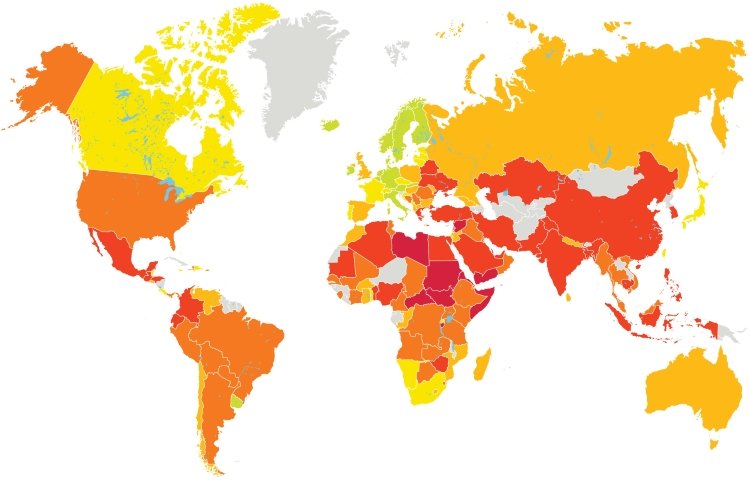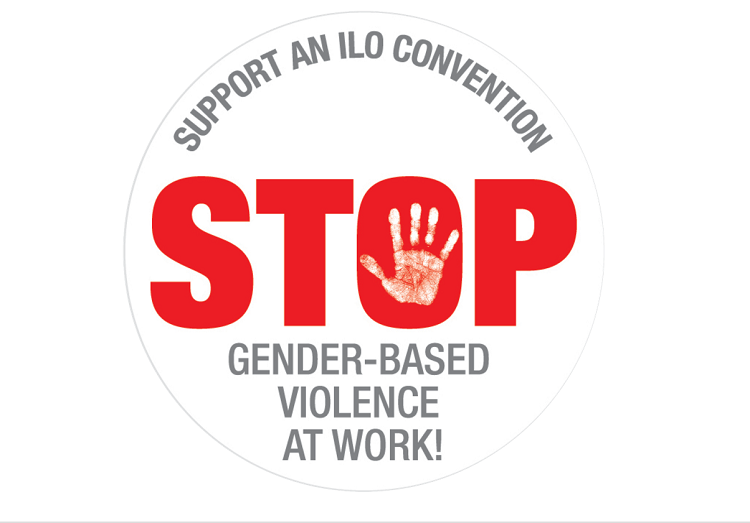PERC Executive Secretary introduced the perception of the EP by the PERC. The concern of the PERC members lies in the fact that while the EU association envisage transfer of the EU practices and frameworks in economic and trade areas, particularly through development of Deep and Comprehensive Free Trade Agreement, the transfer of social and industrial is not part of the story so far. The social partners and other civil society organizations do not have access to policy decision making and often are consulted for the sake of the consultation process itself.
The Civil Society Forum is basically functioning as a closed club of think tanks and non-representative NGOs and social partners do not find a proper place in its structures. The same is replicated on the level of the national platforms: the agenda is being dominated by the NGOs, which are in many cases have project driven interests towards the European Union.
Ms Claude Véron-Réville, Deputy-Head of Division ’Eastern Partnership, Regional Cooperation and OSCE’ presented the EU commission priorities, announcing in particular that the EP summit will address the evolution on its meeting in Warsaw, 29-30 of May. She informed that the CSF is not a full partner in the 4 platforms of the EP because not all of the participating countries are for it. She noted that there is a certain progress on bilateral level, in particular, with Ukraine and Moldova, with the association agreements being negotiated. The social guarantees could not be imposed as this is a negotiation process, however, the social dimension shall be reflected in DCFTAs. The EU Commission, however, could not intervene into CSF activities, being executive power of the EU. The next meeting of the CSF will be in Poznan, Poland. As regarding specific deficiencies in the countries concerned, she invited the unions to report and to express its positions to be reflected in progress reports, raising issues both in multilateral and bilateral dimensions.
Mr. Sandy Boyle, President of the EESC External Service, informed about the position the EESC was going to take on Civil Society Forum functioning. It basically is similar to the PERC assessment. The CSF is not adhered to the initial concept and is a kind of “self-perpetuating” model of think tanks and NGOs. The EESC has initiated revision process with the EU Commissioner Fule, underlining the four majour sets of reforms: 1) the need to have better presence of the EU member states organisations, 2) the need to allocate at least 3 seats for the EESC in the CSF steering group, 3) the need of at least 12 places as quota in the CSF, 4) in case the CSF is not changed, the need to set up a separate body for the social partners. He also informed about the EESC position on bilateral dimension: all the negotiated agreements imperatively must have labour rights dimension, any bilateral agreements must adhere to the ILO standards.
MEP Marek Siwiec of the PES present the debates on the EP in the European Parliament. He noted that there is certain progress, particularly in terms of stability, in the region, however, differentiated approach is needed. He informed that in terms of financial support, the ratio of 1/3 to 2/3 would stay re. events in the South of the ENP. With regret he also noted that the EP took a position of a vague “European perspective” for the six countries and not a position of “a long-term objective” in terms of the EU membership. Taking into account recent events in Belarus, after the Presidential elections, the cooperation between the Parliaments will not include the parliament from that country, however, a special EP working group will continue. On specific situations in other countries, he noted the deficiency in quality of democracy in the region, domination of the soviet mentality and appreciation of “strong hand rulers” that basically hinders the democratization processes.
The participants then met with the Steering Committee of the CSF. The meeting with the TUs was preceded by the one with the head of the External Relations Section of the EESC. It obviously has been an intensive encounter however without any signals for real progress towards our common position.
The meeting with the trade unions developed along similar line with comparable outcome. TU position stated the importance of CSF and the expectations to use it for advancing labour and social rights in the region. It was opened towards cooperation with other civil society actors to reinforce each others efforts. At the same time the operation of the Forum so far have been largely disappointing:
o The underlying principles of the whole construction have deviated from the original logic and approach of the Communication of the European Commission.
o Current set of structures and procedures actually deters and does not allow real access to the policy process. The recommendations do not seem to have information value and definitely zero political impact.
o Additionally the selection procedures and internal arrangements/elections in the CSF are creating tensions and marginalisation of labour and social rights as policy areas, respectively social partners, EESC as representatives for advancing these rights. They could be even counter productive – example presence of the leader of Belarusian official unions in the CSF.
o The committee was informed of the PERC decision that if these conditions persist the unions will reconsider the need to continue their participation and with EESC and the employer organisations will look for setting up alternative channel for involvement in the EaP. It was underlined that this endangers “competition” between the possible two civil society structures and this hardly will be an appreciation of the work of CSF.
It was underlined that TUs are ready to work together with the Steering Committee and CSF members to remedy the situation and provide to social partners real chance to deliver in the policy making process of the CSF and in the arrangements of the Committee itself. This will improve efficiency of the overall operation.
The Committee presidents acknowledged the problems and underlined the difficulties they are facing to deal with it. The committee has been conducting heated discussions inside but so far no real outcome and the questions are still pending. The reactions of the presidents were politely bureaucratic within the perimeter of preserving the status quo. The arguments put forward indicated clear lack of preparedness to address the complicated situation bordering on incompetence and basically only gave further proof to the concerns and proposals of the unions.
The final line was that the Committee will continue to look into the matter and keep us informed. The feeling of the trade union representatives was not to expect any major positive shifts towards our position.


